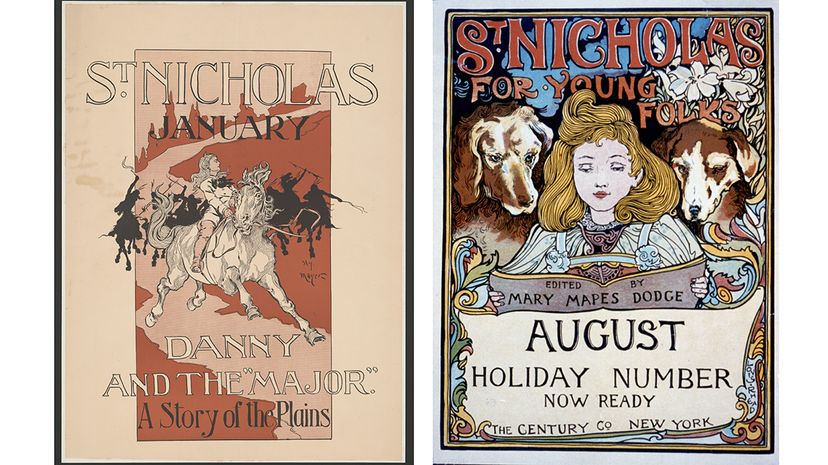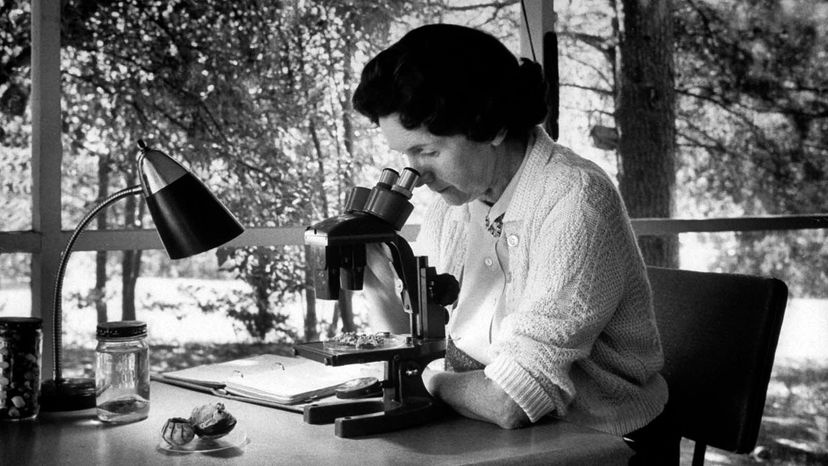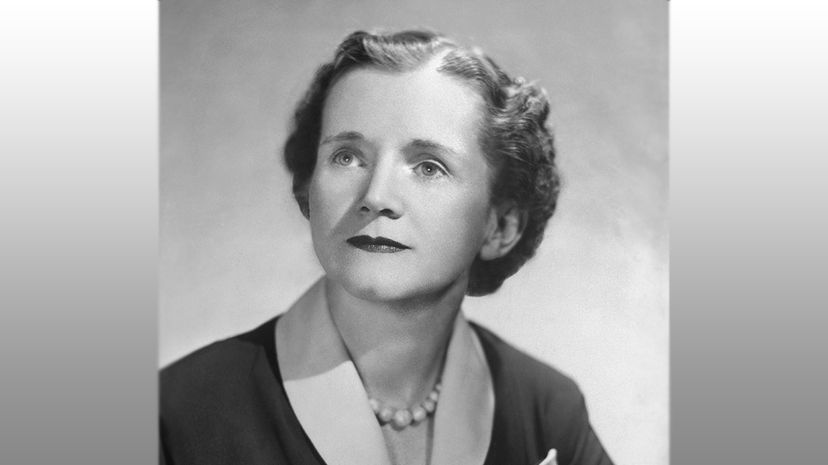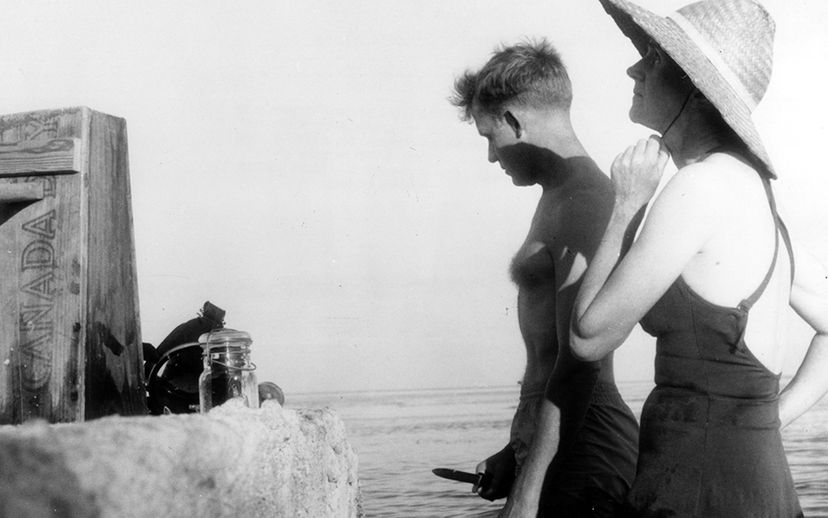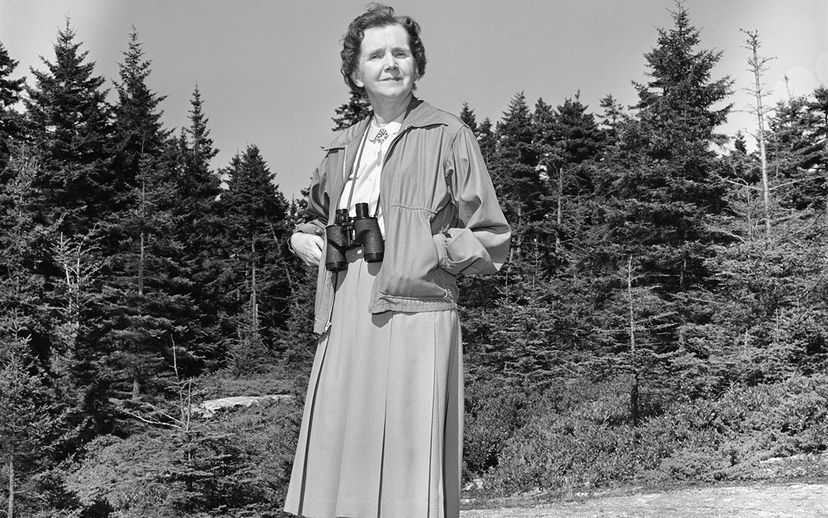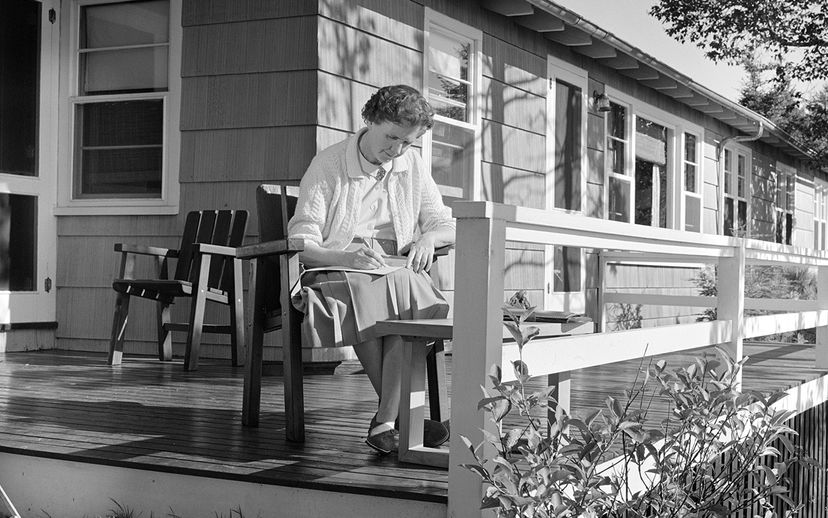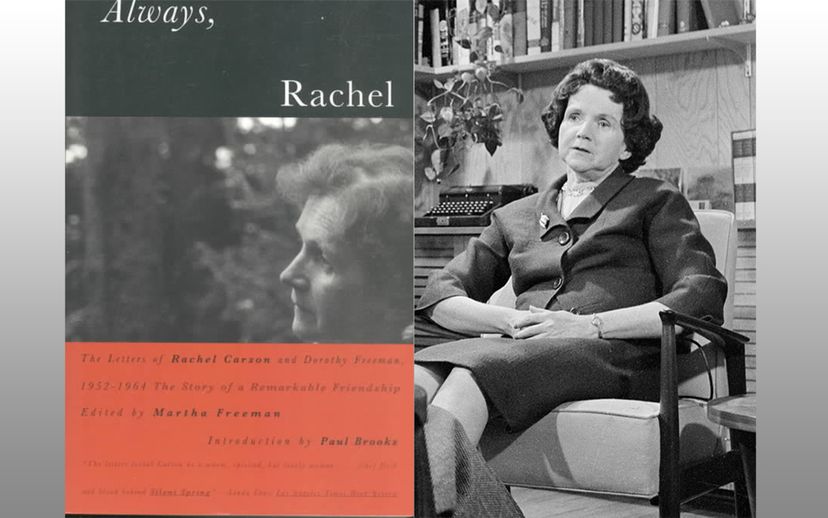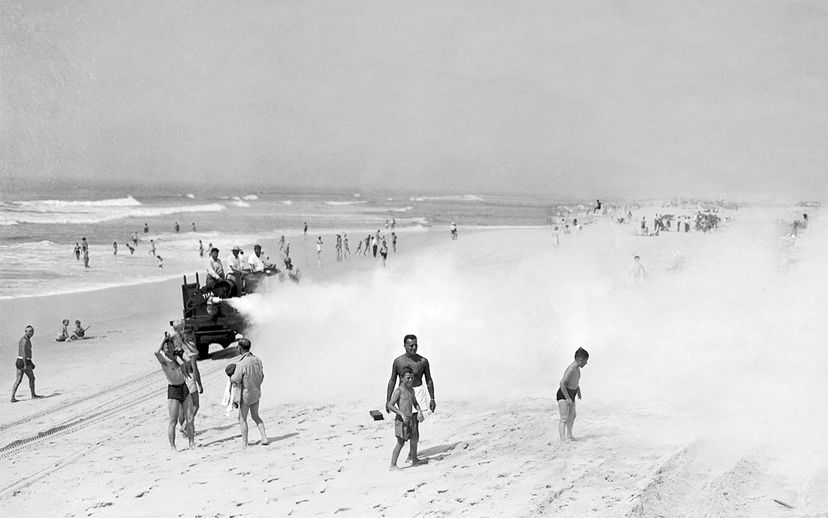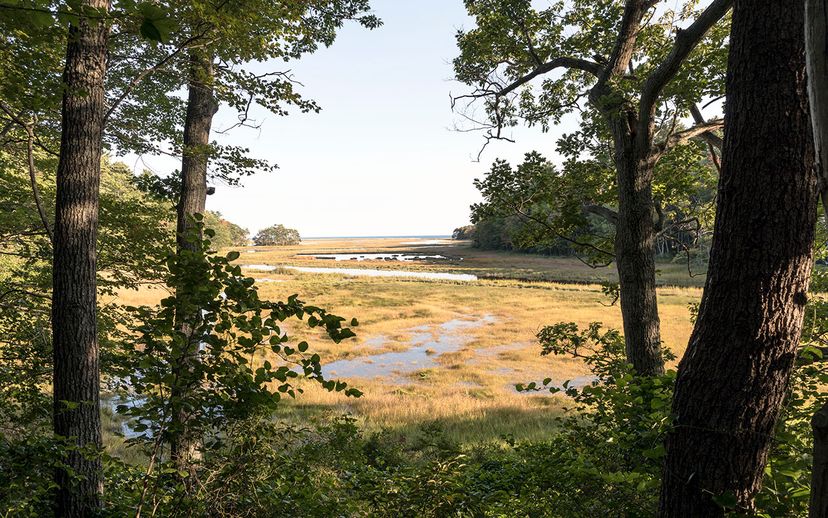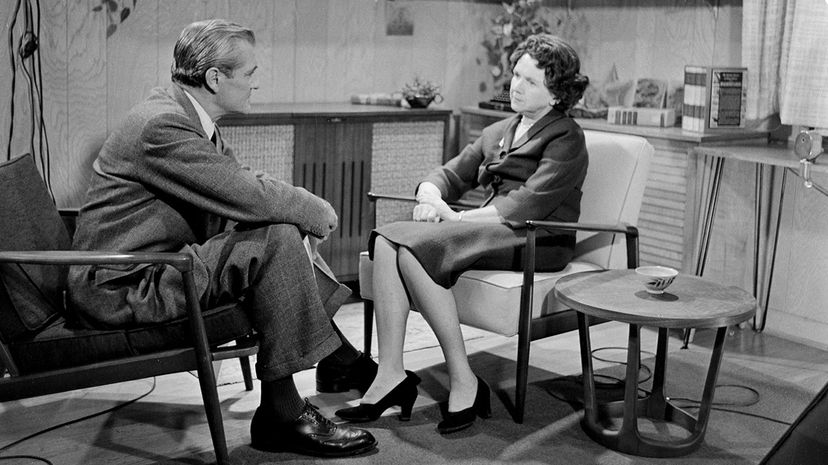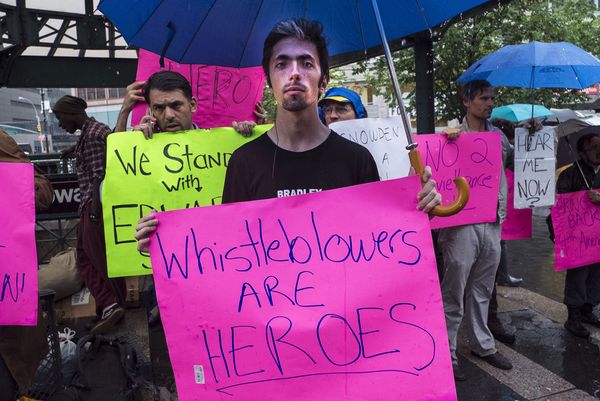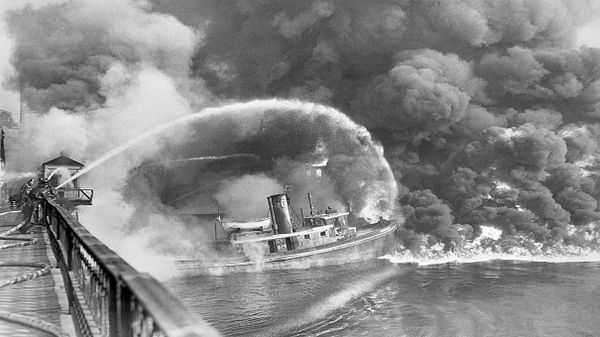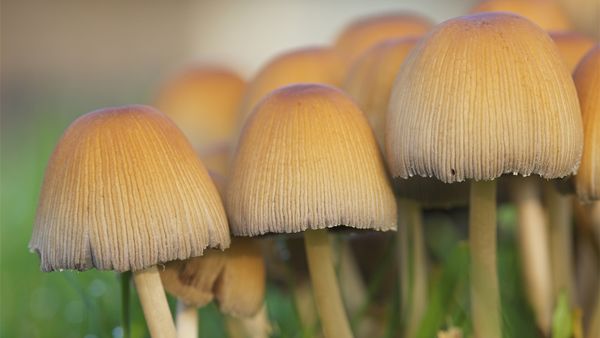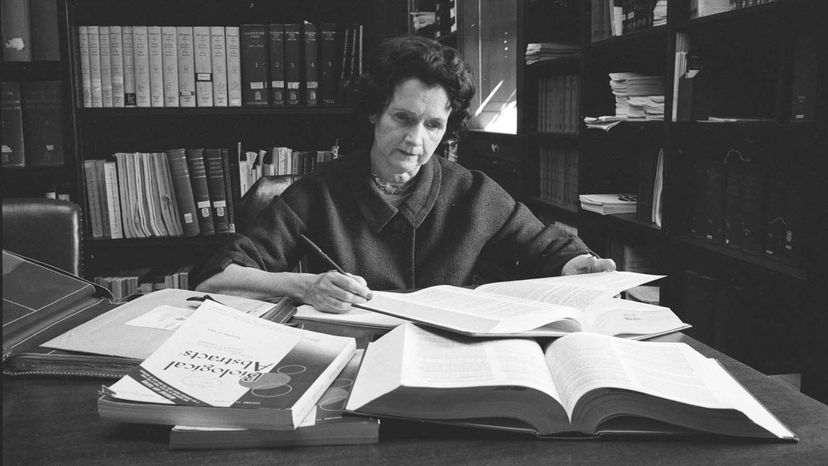
In 1963, a 60-minute documentary aired on the program "CBS Reports." In it, a serene, highly articulate middle-aged woman sat in her den calmly proposing that it might not be such a good idea to spray 900 million pounds (408 million kilograms) per year of an insecticide called DDT on crops, roadsides and lawns across the country. She pointed out that nobody knew what the long-term consequences might be — for either humans or wild animals. That woman was Americanmarine biologistand conservationistRachel Carson。
Offering an opposing point of view was a spokesman for the chemical company, American Cyanamid named Robert White-Stephens. Clad in a lab coat and sporting thick, black-rimmed glasses, White-Stephens opined that Carson was wrong to suppose that we should be careful about messing with the natural world. Smart scientists knew better, he said. They knew, in fact, that "man" was well on the road to "mastering" nature.
Advertisement
Carson was wearing a wig during that television interview because her hair had fallen out. She was in the midst of receiving radiation treatments for thecancerthat would soon kill her. Despite her advanced illness, she managed to communicate her points eloquently and reasonably, unlike her dogmatic counterpart [source:Weeks].By most accounts, Carson won the showdown.
